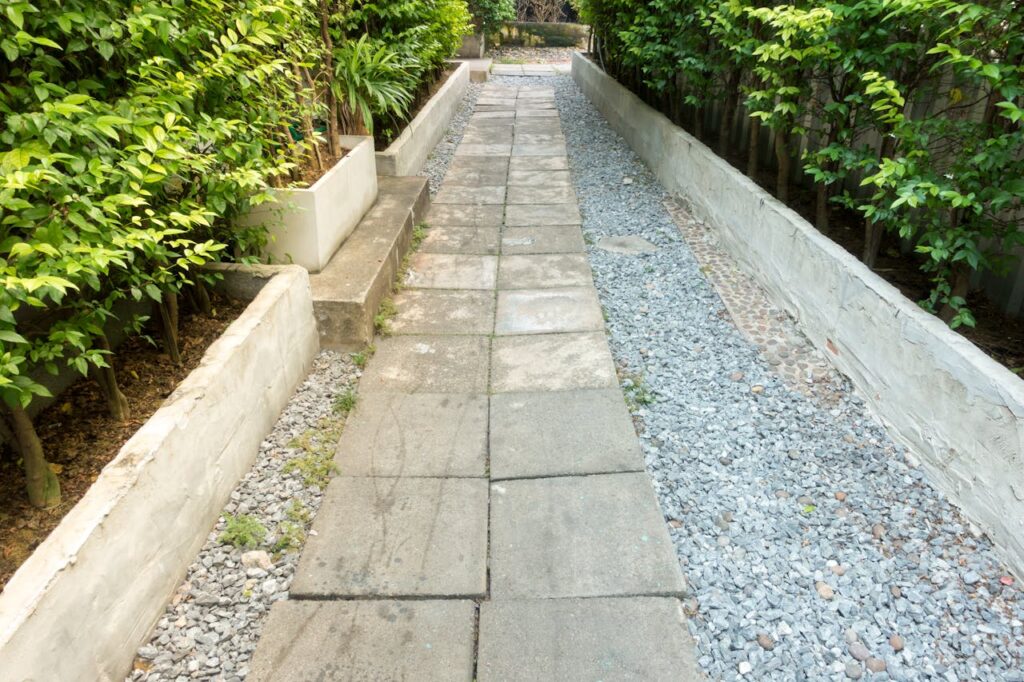As environmental concerns become increasingly vital, adopting sustainable practices in every aspect of our lives is essential. One area where we can make a significant impact is our approach to landscaping. Sustainable landscaping involves the use of eco-friendly materials and practices, contributing to a healthier environment for both the local ecosystem and the planet as a whole.
Explore sustainable landscaping and its numerous benefits. We will explore the various eco-friendly materials and practices available to transform your outdoor space into a flourishing, environmentally responsible oasis. By embracing sustainable landscaping, you are not only promoting ecological harmony but also creating a beautiful, functional, and low-maintenance landscape that will require fewer resources over time.
Understanding the principles of sustainable landscaping will help you make informed decisions about the materials, designs, and techniques you implement in your outdoor space. From selecting sustainable landscape materials to incorporating water-saving strategies and native plants, there are many opportunities for you to create a greener, healthier outdoor environment. Ready to embark on this environmentally conscious journey? Join us as we delve into the world of sustainable landscaping, offering expert guidance and insights that will inspire and empower you to create a stunning, eco-friendly outdoor space.
1. Sustainable Landscape Materials
Incorporating sustainable landscape materials is the foundation of creating an environmentally responsible outdoor space. These materials typically have a lower environmental impact than traditional alternatives and can greatly contribute to a more sustainable landscape. Consider utilizing the following eco-friendly materials in your outdoor space:
- Recycled Mulch: Mulch made from recycled wood or plant materials is not only an eco-friendly choice but also an effective way to suppress weeds, retain moisture, and regulate soil temperature. Opt for mulch made from local, renewable sources to further reduce your environmental footprint.
- Permeable Pavers: Permeable pavers are a durable and attractive option for patios, walkways, and driveways. These pavers allow water to pass through them, reducing runoff and preventing soil erosion while recharging groundwater supplies.
- Reclaimed Stone and Brick: Reclaimed or salvaged stone and brick are sustainable alternatives to new materials, offering both environmental and aesthetic benefits. Repurposing these materials adds character to your outdoor spaces while reducing waste and conserving resources.
- Recycled Rubber Edging: Edge your garden beds or walkways with recycled rubber edging made from repurposed tires. This sustainable landscaping material not only keeps tires out of landfills but also provides a durable, low-maintenance solution for defining your garden’s boundaries.
2. Water-Saving Strategies
Water conservation is an essential aspect of sustainable landscaping. Implementing water-saving strategies in your outdoor space can help minimize water usage, reduce your utility bills, and benefit the local ecosystem. Consider the following water-saving techniques:
- Drought-Tolerant Plants: Incorporate native or drought-tolerant plants that require minimal watering once established. These plants are adapted to local climate conditions and can thrive with little supplemental irrigation.
- Smart Irrigation Systems: Use smart irrigation systems, such as drip irrigation or rain sensors, to provide targeted watering for your plants. These systems optimize water usage, reduce waste, and ensure your plants are well-cared for while conserving valuable resources.
- Rain Gardens and Rain Barrels: Capture rainwater using rain barrels or consider creating a rain garden, which is a shallow basin planted with native species that collect, filter, and absorb stormwater runoff. These tools not only conserve water but also help reduce pollution and flooding.
3. Native and Wildlife-Friendly Gardening
Using native plants and creating wildlife-friendly gardens contribute to sustainable landscapes by supporting local ecosystems and increasing biodiversity. Embrace the following wildlife-friendly gardening practices:
- Plant Selection: Choose native plants that provide food, shelter, and nesting sites for local birds, butterflies, and other beneficial insects. Native plants are better adapted to local conditions, require fewer resources, and are more resistant to pests and diseases.
- Layered Plantings: Create layers of vegetation in your garden, from ground covers to shrubs and trees. This diversity provides a variety of habitats for wildlife and promotes a healthier, more balanced ecosystem.
- Avoid Invasive Species: Invasive non-native plant species can compromise local ecosystems by crowding out native species, altering soil composition, and negatively impacting wildlife. Research and avoid planting invasive species in your sustainable landscape.
4. Sustainable Landscape Maintenance Practices
Adopting sustainable maintenance practices is the key to preserving the long-term health and beauty of your landscape. Follow the tips below to ensure your garden remains both sustainable and attractive:
- Organic Pest Control: Minimize your use of chemical pesticides by relying on organic and eco-friendly pest control methods, such as introducing beneficial insects, companion planting, or using homemade remedies.
- Compost: Make your own compost from garden waste and kitchen scraps, providing your plants with a natural source of nutrients while reducing waste and the need for synthetic fertilizers.
- Proper Pruning and Mulching: Practice correct pruning techniques to maintain plant health and reduce the spread of diseases. Use organic mulch in your garden beds to conserve moisture, suppress weeds, and improve soil quality.
Embrace Sustainable Landscaping for a Greener Tomorrow
By adopting sustainable landscaping practices and incorporating eco-friendly materials, you can create an outdoor space that positively impacts local ecosystems, conserves resources, and promotes long-term environmental health. Embrace sustainable landscaping to create a beautiful and responsible sanctuary that benefits both your property and the planet.
Our professionals at Northwest Landscape Supply are here to help you select the best sustainable landscape materials in Seattleand provide insights on environmentally friendly techniques to ensure your outdoor space thrives in harmony with the natural environment. Explore our range of landscape materials today!

